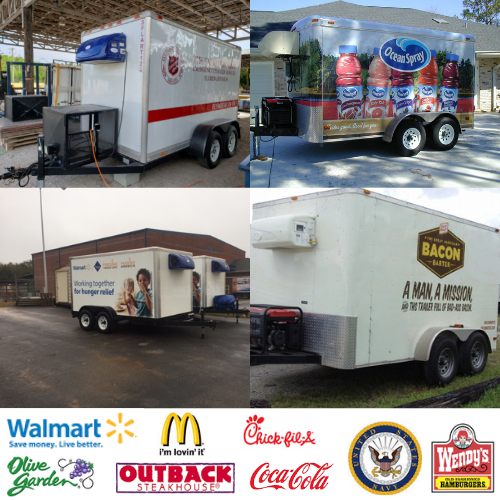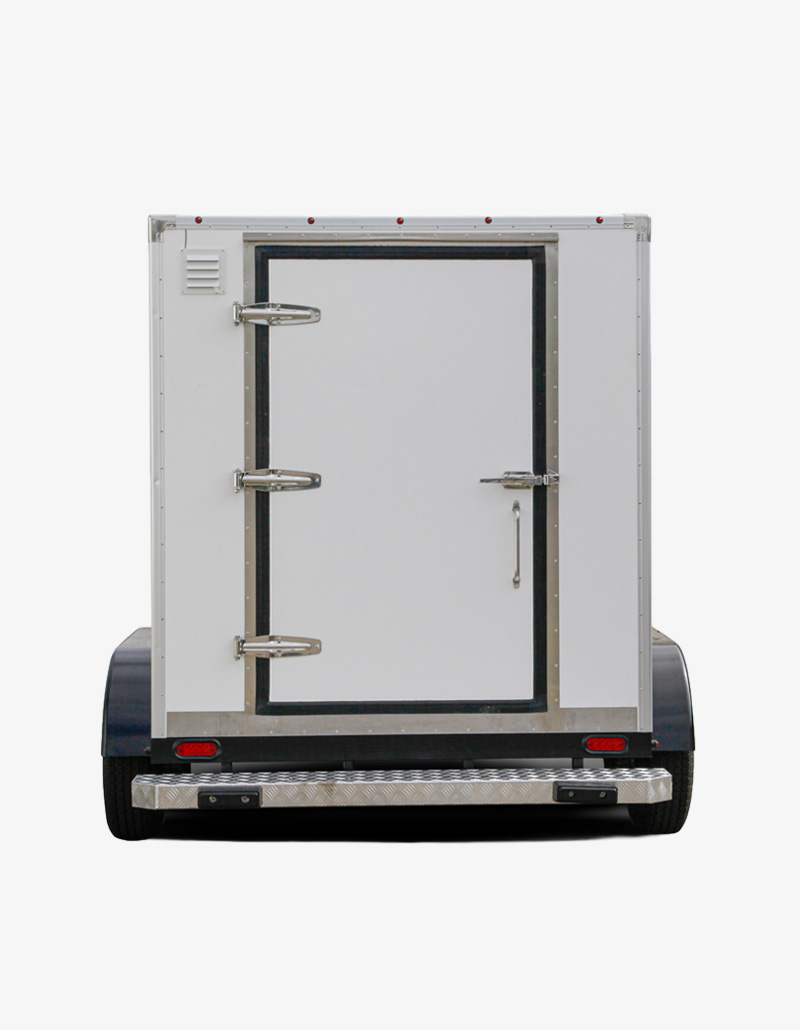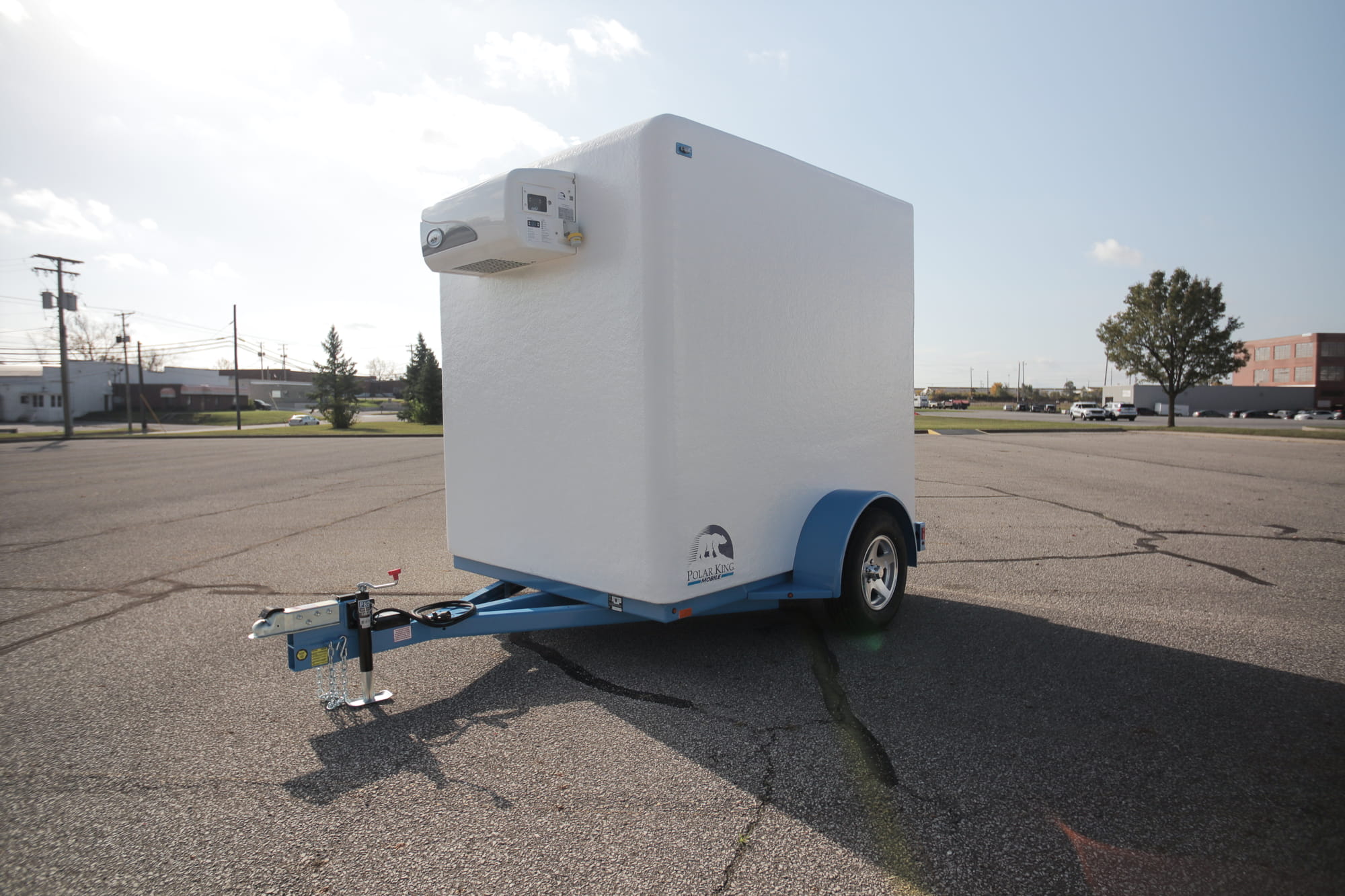Small Refrigerated Trailer-Cooler Trailers: Maintaining Your Product Fresh
Small Refrigerated Trailer-Cooler Trailers: Maintaining Your Product Fresh
Blog Article
The Ultimate Guide to Picking the most effective Refrigerated Trailers
When it comes to choosing the perfect chilled trailer for your company needs, different aspects must be carefully thought about to make certain optimal efficiency and efficiency. From the various types of chilled trailers readily available to the key functions such as size, temperature control, and power efficiency, each facet plays a vital function in identifying the finest fit for your certain needs.
Types of Refrigerated Trailers

The two primary types of cooled trailers are reefer trailers and protected trailers. Reefer trailers, short for cooled trailers, are geared up with cooling down systems that actively regulate the internal temperature level to keep subject to spoiling goods at the necessary problems during transport.

Dimension Considerations
Thinking about the dimensions of the chilled trailer is important to make certain optimal storage capability and effective transportation of disposable products. When choosing the size of a cooled trailer, it is important to take into account the volume of goods that need to be delivered.
Another aspect to consider when determining the size of the cooled trailer is the dimensions of the items being transferred. Some products might have certain size requirements or require to be stacked in a particular way to stop damages. Therefore, selecting a trailer dimension that accommodates the measurements of the products will assist maintain their quality throughout transit.

Temperature Level Control Attributes
Effective monitoring of temperature level control in chilled trailers is critical for protecting the quality and safety and security of subject to spoiling products during transport. When picking a refrigerated trailer, it is vital to think about the temperature control features it offers. Look for trailers equipped with sophisticated temperature level surveillance systems that give real-time information on the indoor problems. These systems ought to have exact temperature level settings and signals for any kind of inconsistencies, ensuring that the cargo remains within the needed temperature array.
Moreover, some cooled trailers feature multi-zone temperature control abilities, enabling different compartments to preserve differing temperatures as needed for various kinds of products. When transporting a mix of subject to spoiling products with unique address temperature level needs, this feature is specifically helpful. In addition, trailers with reliable insulation and temperature level uniformity throughout the cargo space assistance prevent hot or cool places, making sure consistent conditions for all products being moved
Power Performance Elements
A more information crucial aspect to evaluate when picking a cooled trailer is its energy efficiency, which plays a significant duty in reducing operational prices and environmental effect. Power effectiveness variables to consider include the insulation high quality of the trailer, the sort of refrigeration system made use of, and any extra features that contribute to minimizing power intake. High-grade insulation is crucial as it helps maintain the preferred temperature inside the trailer with minimal energy loss. Modern refrigeration systems, such as those using sophisticated technology like electric standby choices or solar energy, can also improve power performance. In addition, attributes like automatic defrost cycles, temperature level surveillance systems, and reliable air flow design can better enhance energy usage. By focusing on energy-efficient refrigerated trailers, services can not only minimize general expenses but additionally reduce their carbon footprint, making a positive contribution to sustainability efforts in the transport market.
Upkeep and Solution Tips
Given the critical duty of energy efficiency in decreasing functional prices, it is necessary to establish a positive upkeep and solution routine for cooled trailers to make certain ideal performance and long life. In addition, examining the trailer's tires, brakes, lights, and electric systems is necessary to guarantee secure and trusted operation. Teaming up with a reliable service company for regular upkeep checks and attending image source to any kind of problems quickly can significantly extend the life expectancy of the refrigerated trailer.

Final Thought
To conclude, choosing the very best cooled trailer involves considering different factors such as the kind of trailer, dimension demands, temperature level control attributes, power effectiveness, and upkeep requirements. By reviewing these elements very carefully, services can guarantee they choose a refrigerated trailer that meets their details demands and requirements, eventually bring about more effective transportation and storage space of temperature-sensitive products.
The 2 key kinds of refrigerated trailers are reefer trailers and shielded trailers (small refrigerated trailer- cooler trailers). Reefer trailers, short for refrigerated trailers, are outfitted with cooling down systems that actively manage the interior temperature level to maintain disposable items at the required conditions throughout transportation.On the other hand, insulated trailers are created to maintain the temperature level of the goods making use of the insulation residential or commercial properties of the trailer wall surfaces. While they do not have energetic air conditioning systems like reefer trailers, protected trailers are ideal for products that need protection from external temperature variations but do not need as strict temperature control as subject to spoiling products.Effective monitoring of temperature control in chilled trailers is critical for preserving the quality and security of subject to spoiling items during transportation
Report this page